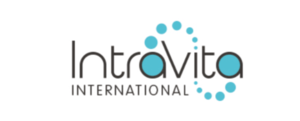Dr Jacques Otto, the head trainer at IntraVita, details the company’s development and standards for the training and use of intravenous nutrient therapy
I was introduced to Intravenous Nutrient Therapy (IVNT) in 2009 in the Far East where I noticed the positive health and wellbeing effects of intravenous nutrients. Teaming up with Vernon Otto, in 2009 we started to manufacture intravenous nutrients (vitamins, amino acids and minerals) under European Good Manufacturing Practice (EU GMP), before establishing IntraVita.
Classification and use
The United Kingdom Medicines and Healthcare Regulatory Agency has
advised that there are a number of vitamins and minerals available for intravenous administration in the UK which are labelled
as medicinal products and have marketing authorisations. These are for specific medical purposes and often solely by virtue of their mode of administration, default to being prescription-only medicines (POMs). Where products are not intended to used for a medical purpose and make no medical claims then the MHRA has advised that these may fall outside the definition of a medicine. In such cases, the MHRA advice is that for clinics to ensure that those who administer the products are appropriately qualified. Provided no medicinal claims are made, EU GMP is adhered to and the products are only used for promotion of health and wellbeing. IntraVita’s products also fall outside the remit of the Care Quality Commission (CQC) for
the same reason. The only POMs used in IntraVita’s formulations include 0.9% sodium chloride, sterile water for injection, calcium gluconate and magnesium sulfate. IntraVita’s formulations exclude any MAMs for off-license indications and it is company policy that Intravenous Drug Therapy (IVDT) for off- license indications has no place in IVNT. Intravenous nutrition is excluded from clinical education curricula in most countries around the world. Multinational pharmaceutical companies are mostly disinterested in IVNT because a nutrient can’t be patented and therefore it can easily be copied. In the light of the MHRA’s advice in regard to professional
obligations of those who administer these products IntraVita only supplies clinicians trained and certified (for insurance purposes) by IntraVita, including doctors, dentists, nurses, pharmacists and paramedics. Since 2014 IntraVita has trained more than 1,000 practitioners from the UK and abroad and, for the period 2014 to 2018, has supplied over 60,000 intravenous nutrient formulations to hundreds of clinics.
Formulations
The formulations are preservative free, don’t contain traces of animals, so are vegan friendly, and are also free of genetically- modified organisms, hexane and sugar. No serious side effects or complications have been reported during this period, compared to pharmaceutically-manufactured products that contain preservatives to increase product shelf life. This can lead to allergic reactions and, rarely, anaphylaxis. To improve safety and efficacy, over the past three years, our research and development has focused on developing multi-nutrient formulations and, more recently, we introduced ready-mixed multi-nutrient formulations in glass bottles. These formulations enhance ease of infusion preparation, save time, minimise user error and, most importantly, reduce the risk of infusion contamination with microbes.
Insurance and training
IntraVita’s products have product liability insurance in the UK and practitioners that have completed our face-to-face or online training can obtain insurance from Cosmetic Insure, Hiscox, Lonsdale and Hamilton Fraser. In the UK, practitioners registered with the General Medical Council (GMC), must undergo appropriate training and
have valid insurance in order to practice IVNT. Practitioners that do not use EU GMP intravenous nutrients are urged to contact their insurance company to verify if their insurance is valid and products sourced from jurisdictions outside the EU, for example, the US (FDA approved), India, South Africa and Canada are advised to check with the MHRA that their products are not regarded as medical products. Efficient training of practitioners has been one of IntraVita’s main priorities because IVNT is not taught at medical schools as part of clinical training. Therefore, IntraVita has been very selective in choosing training academy partners. Cosmetic Courses has been our sole partner for the past year and a half, with training being delivered by myself.
Since 2014, the UK IVNT market has evolved rapidly with practitioners offering concierge services to clients in their homes, offices
and hotel rooms. Another development includes intravenous infusion services offered to people at festivals where intravenous drugs, e.g. paracetamol and others, are administered. IntraVita disapproves of and distances itself from these new developments and the team draw a clear distinction between IVDT and IVNT. Finally, but most importantly, we are vehemently opposed to beauty therapists administering IVNT. This is because they are not accountable to a regulatory body such as the GMC, General Dental Council, Nursing and Midwifery Council, General Pharmaceutical Council or Health and Care Professions Council, and lack clinical training and experience. Thus, it is our opinion that it is not in the best interest of the public to seek IVNT infusions from beauty therapists. In our opinion, insurance companies that insure beauty therapists demonstrate a lack of insight and disregard of public interest and safety.
Dr Jacques Otto is the head clinical trainer at IntraVita and has postgraduate Master’s degrees in pharmacology, general practice and medical law. He was a pharmaceutical physician and scientific affairs manager of Abbott Laboratories in South Africa from 1990 to 1993.

Aesthetics | December 2018

